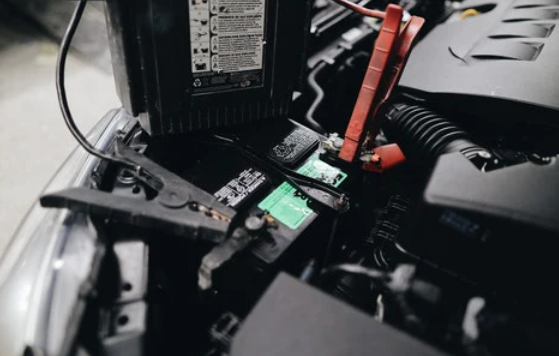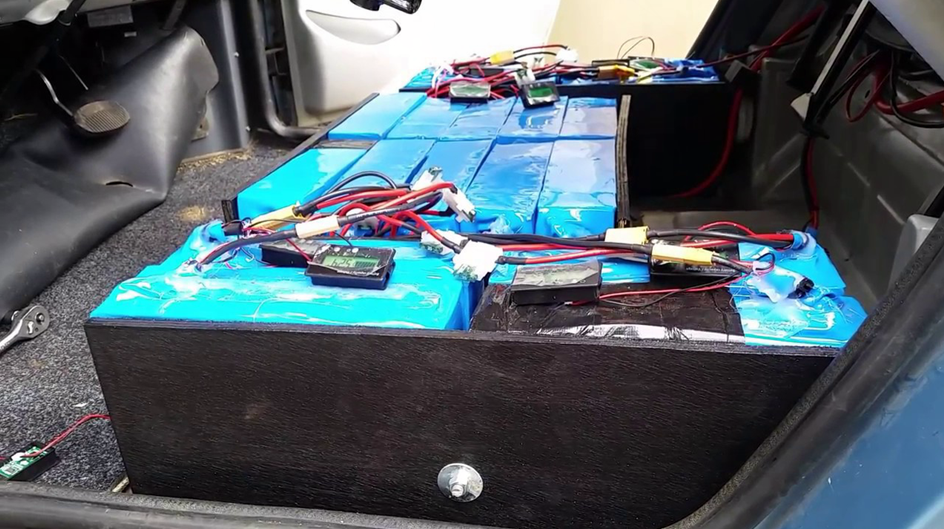리튬 배터리 제조업체: 리튬 배터리 정보
소개
Lithium batteries are rechargeable batteries that are commonly used in portable electronic devices and electric vehicles. They are popular because they have a high energy density, meaning they can store a large amount of energy in a small volume or weight. This makes them ideal for use in portable devices that require a long-lasting battery. In this article, we will discuss how lithium batteries work, their advantages and disadvantages, and their applications.
How Lithium Batteries Work
Lithium batteries work based on the movement of ions between the positive and negative electrodes. The positive electrode is typically made of lithium cobalt oxide or lithium iron phosphate, while the negative electrode is made of graphite. When the battery is charged, lithium ions move from the positive electrode to the negative electrode through an electrolyte. When the battery is discharging, the ions move from the negative electrode back to the positive electrode, producing a flow of electrical current.
리튬 배터리의 장점
One of the biggest advantages of lithium batteries is their high energy density. They can store more energy than other types of batteries, such as lead-acid batteries or nickel-metal hydride batteries. This means that devices that use lithium batteries can be smaller and lighter than those that use other types of batteries.
Another advantage of lithium batteries is their long cycle life. They can be recharged many times without losing their capacity. This makes them ideal for use in devices that are used frequently, such as smartphones and laptops.
Lithium batteries also have a high power density, meaning they can deliver a lot of power in a short amount of time. This makes them ideal for use in electric vehicles, where a high power output is necessary for acceleration.
Disadvantages of Lithium Batteries
One of the biggest disadvantages of lithium batteries is their high cost. They are more expensive than other types of batteries, which can make them less accessible for some consumers.
Another disadvantage is that they can be sensitive to temperature and can degrade quickly if they are exposed to high temperatures. This can reduce their cycle life and overall performance.
Lithium batteries are also prone to a phenomenon called thermal runaway, in which they can catch fire or explode if they are damaged or charged improperly. This is a safety concern that must be addressed in the design and manufacturing of lithium batteries.

Applications of Lithium Batteries
Lithium batteries are commonly used in portable electronic devices, such as smartphones, laptops, and tablets. They are also used in electric vehicles, such as cars and buses, because of their high energy and power density.
Lithium batteries are also used in renewable energy systems, such as solar and wind power. They can store the energy generated by these systems and provide a reliable source of power when the sun or wind is not available.
결론
Lithium batteries are a popular and versatile type of rechargeable battery. They have a high energy and power density, long cycle life, and are commonly used in portable electronic devices, electric vehicles, and renewable energy systems. However, they are also expensive and can be sensitive to temperature and safety concerns such as thermal runaway must be addressed.
-
 Golf has always been considered a sophisticated and relaxing sport enjoyed by people of all ages. Whether you are a professional golfer or simply enjoy a casual game with friends, having a reliable and efficient golf cart is essential for enhancing your overall golfing experience. And at the heart of every golf cart lies the golf cart battery, the powerhouse...더 읽어보세요
Golf has always been considered a sophisticated and relaxing sport enjoyed by people of all ages. Whether you are a professional golfer or simply enjoy a casual game with friends, having a reliable and efficient golf cart is essential for enhancing your overall golfing experience. And at the heart of every golf cart lies the golf cart battery, the powerhouse...더 읽어보세요 -
 A locomotive starter battery is an essential power source for railway engines. It is responsible for providing the initial power to start the engine, as well as supplying power to various systems during operation. Without a reliable starter battery, a locomotive would be unable to function properly, leading to delays in transportation and potential safety hazards. The starter battery...더 읽어보세요
A locomotive starter battery is an essential power source for railway engines. It is responsible for providing the initial power to start the engine, as well as supplying power to various systems during operation. Without a reliable starter battery, a locomotive would be unable to function properly, leading to delays in transportation and potential safety hazards. The starter battery...더 읽어보세요 -
 서론: 최근 자동차, 군수, 해양, 항공우주 등 다양한 산업에 적용되면서 고성능 배터리에 대한 수요가 크게 증가하고 있습니다. 리튬 이온 배터리는 이러한 응용 분야에서 가장 발전되고 안정적인 전원으로 간주됩니다. 다양한 유형의 리튬이온 배터리 중에서 Lifepo4 스타터 배터리는 우수한 성능, 높은 에너지 밀도,...더 읽어보세요
서론: 최근 자동차, 군수, 해양, 항공우주 등 다양한 산업에 적용되면서 고성능 배터리에 대한 수요가 크게 증가하고 있습니다. 리튬 이온 배터리는 이러한 응용 분야에서 가장 발전되고 안정적인 전원으로 간주됩니다. 다양한 유형의 리튬이온 배터리 중에서 Lifepo4 스타터 배터리는 우수한 성능, 높은 에너지 밀도,...더 읽어보세요 -
 Lithium-ion batteries have become an integral part of our daily lives, powering a wide range of portable electronic devices such as smartphones, laptops, and tablets. These batteries have revolutionized the way we use and rely on technology. In this article, we will explore the advantages and applications of lithium-ion batteries. One of the key advantages of lithium-ion batteries is...더 읽어보세요
Lithium-ion batteries have become an integral part of our daily lives, powering a wide range of portable electronic devices such as smartphones, laptops, and tablets. These batteries have revolutionized the way we use and rely on technology. In this article, we will explore the advantages and applications of lithium-ion batteries. One of the key advantages of lithium-ion batteries is...더 읽어보세요 -
 Introduction: Lithium-ion batteries have revolutionized the portable electronic industry and are becoming increasingly prevalent in various applications, from electric vehicles to renewable energy storage. However, ensuring the performance and safety of lithium batteries is of utmost importance, as their failure can result in catastrophic consequences. This article aims to explore the significance of instrumentation in lithium batteries and how it...더 읽어보세요
Introduction: Lithium-ion batteries have revolutionized the portable electronic industry and are becoming increasingly prevalent in various applications, from electric vehicles to renewable energy storage. However, ensuring the performance and safety of lithium batteries is of utmost importance, as their failure can result in catastrophic consequences. This article aims to explore the significance of instrumentation in lithium batteries and how it...더 읽어보세요 -
 As electric vehicles continue to grow in popularity, the demand for lithium-ion batteries has increased significantly. Lithium-ion batteries are the most popular type of battery used in electric vehicles due to their high energy density, long lifespan, and low maintenance requirements. In this article, we will delve into the specifications of a lithium-ion battery for electric vehicles. Capacity ...더 읽어보세요
As electric vehicles continue to grow in popularity, the demand for lithium-ion batteries has increased significantly. Lithium-ion batteries are the most popular type of battery used in electric vehicles due to their high energy density, long lifespan, and low maintenance requirements. In this article, we will delve into the specifications of a lithium-ion battery for electric vehicles. Capacity ...더 읽어보세요 -
 Introduction: In recent years, the healthcare industry has witnessed significant advancements in technology, leading to improved patient care and better treatment outcomes. One such technological breakthrough that has revolutionized healthcare is the development of medical device lithium batteries. These batteries have transformed the capabilities of medical devices, making them more efficient, portable, and reliable. This article explores the impact of...더 읽어보세요
Introduction: In recent years, the healthcare industry has witnessed significant advancements in technology, leading to improved patient care and better treatment outcomes. One such technological breakthrough that has revolutionized healthcare is the development of medical device lithium batteries. These batteries have transformed the capabilities of medical devices, making them more efficient, portable, and reliable. This article explores the impact of...더 읽어보세요

